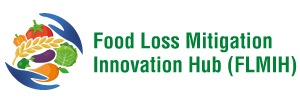Assess the impact of preharvest silicon application on the postharvest quality of tomatoes
Project Description Partially burnt rice hull is a rich source of Silicon which enhances plant growth in nutrient-less soil and overall plant health and Productivity. Hence main objectives of this study are to recommend an optimum dosage of partially burnt rice hull application for tomato plants; to distinguish quality improvement by the application; and to…

